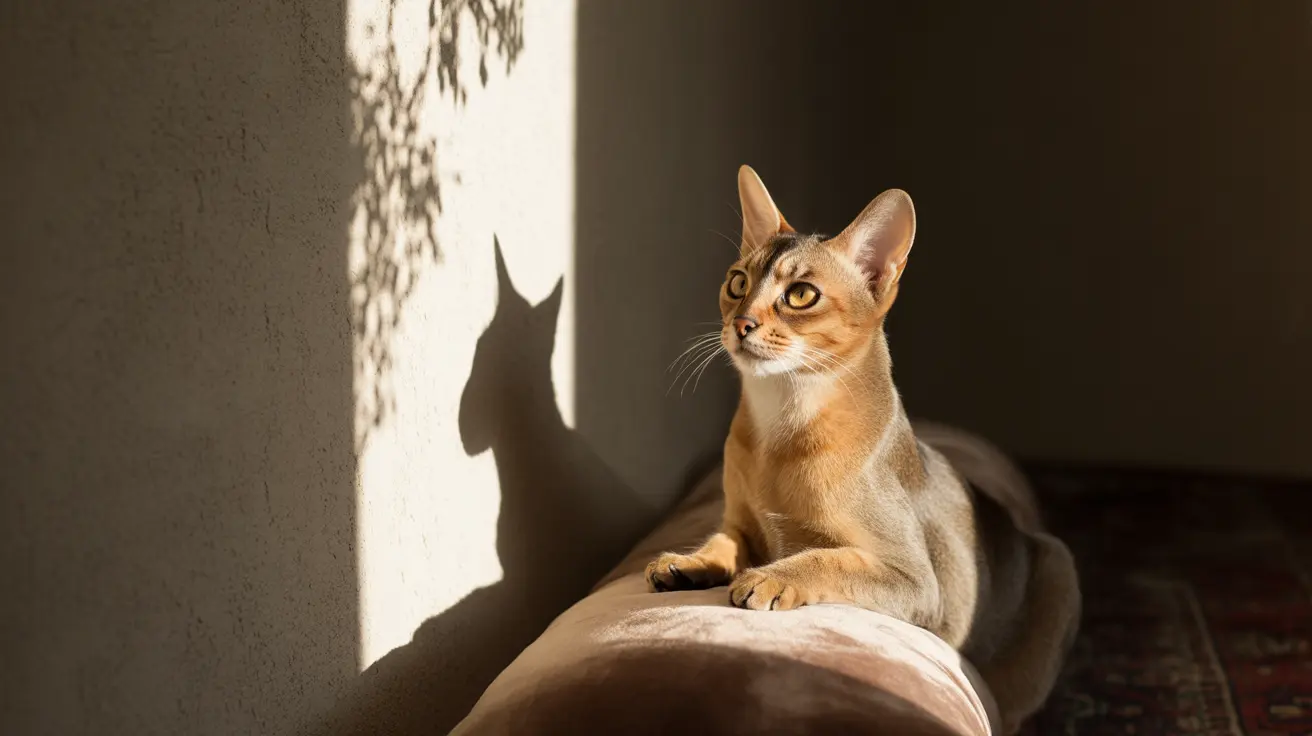Normal Reasons for Dilated Pupils in Cats
Light Adaptation
Cats' pupils naturally dilate in low-light conditions to enhance their vision. This impressive adaptation allows them to see up to six times better than humans in dim environments. Even indoor lighting that seems bright to us might trigger this response in cats.
Emotional States
Your cat's emotional state significantly influences pupil size. Excitement during play, fear response to unfamiliar situations, or heightened arousal can all cause temporary pupil dilation. This is part of their natural "fight-or-flight" response system.
Medical Causes of Dilated Pupils
Hypertension and Related Conditions
High blood pressure is a common cause of persistent pupil dilation, especially in older cats. This condition can lead to serious complications, including sudden blindness from retinal detachment, making early detection crucial.
Neurological Issues
Various neurological conditions can affect pupil size and responsiveness. These include:
- Feline dysautonomia
- Brain injuries or tumors
- Nerve damage affecting eye function
Eye Diseases and Disorders
Several eye-specific conditions can cause prolonged pupil dilation:
- Progressive retinal atrophy
- Glaucoma
- Iris atrophy
- Retinal detachment
When to Seek Veterinary Care
Immediate veterinary attention is necessary if you observe:
- Pupils that remain dilated despite bright light
- Uneven pupil sizes (anisocoria)
- Signs of vision problems
- Changes in behavior or appetite
- Eye discharge or redness
Monitoring Your Cat's Eye Health
Regular observation of your cat's eyes can help detect problems early. Keep track of:
- Normal pupil responses to light
- Any changes in eye appearance
- Associated behavioral changes
- General health indicators
Frequently Asked Questions
Why are my cat's eyes always dilated even in bright light?
Constant dilation in bright light could indicate several issues, including hypertension, neurological problems, or eye diseases. If this persists for more than a day, consult your veterinarian.
Can persistently dilated pupils in cats indicate serious health problems?
Yes, while some causes are benign, persistent pupil dilation can signal serious conditions like hypertension, retinal problems, or neurological issues requiring immediate medical attention.
What medical conditions cause my cat's pupils to stay dilated?
Common medical causes include high blood pressure, kidney disease, hyperthyroidism, progressive retinal atrophy, glaucoma, and certain neurological conditions.
When should I take my cat to the vet for dilated or uneven pupils?
Seek veterinary care if pupil dilation persists for more than 24 hours, pupils are uneven, or if accompanied by other symptoms like vision problems, behavioral changes, or eye discharge.
How do emotional states like fear or excitement affect my cat's pupil size?
Emotional arousal triggers the sympathetic nervous system, causing temporary pupil dilation. This is normal and should resolve once your cat calms down.
Conclusion
While dilated pupils in cats can be normal, persistent dilation requires attention and potentially veterinary care. Understanding the difference between normal variations and concerning symptoms helps ensure your cat's eye health and overall well-being.
Monitor your cat's eyes regularly and consult with your veterinarian if you notice any persistent changes or concerning symptoms. Early detection and treatment of underlying conditions can prevent serious complications and maintain your cat's quality of life.






